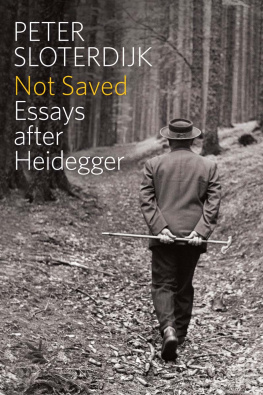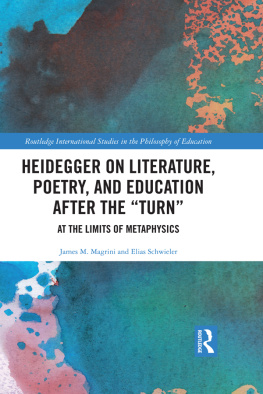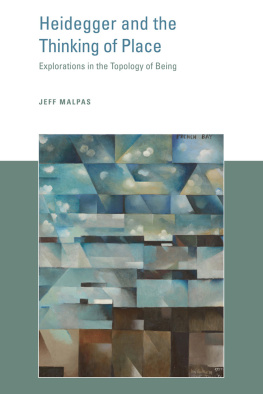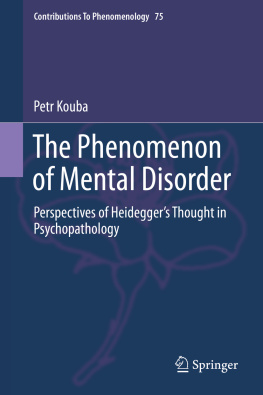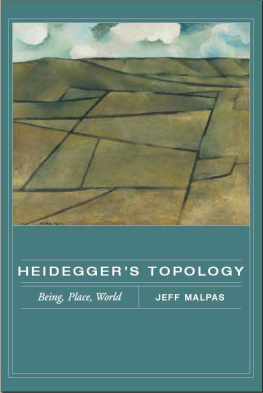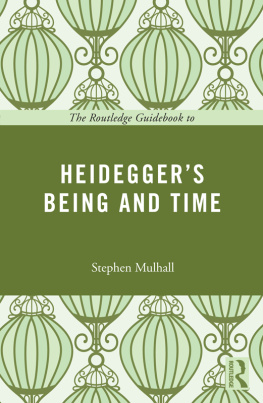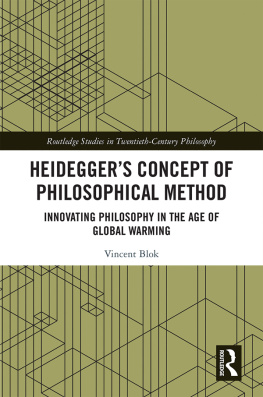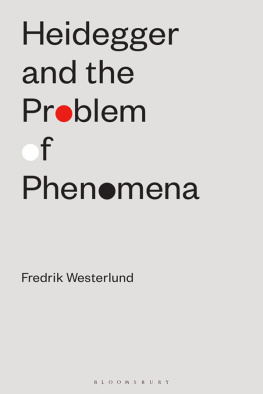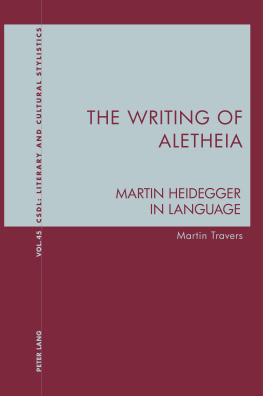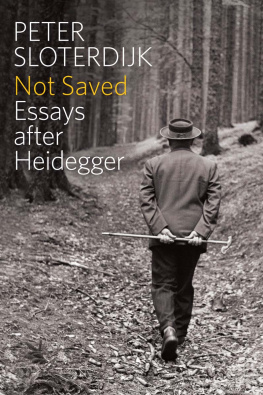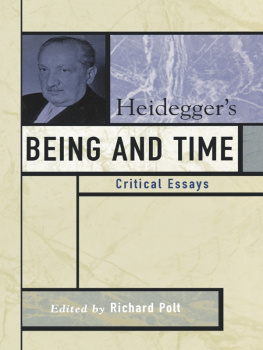Contents
Guide
Pages

Not Saved
Essays after Heidegger
Peter Sloterdijk
Translated by Ian Alexander Moore and Christopher Turner
polity
First published in German as Nicht gerettet. Versuche nach Heidegger Suhrkamp Verlag, Frankfurt am Main, 2001
This English edition Polity Press, 2017
Polity Press
65 Bridge Street
Cambridge CB2 1UR, UK
Polity Press
350 Main Street
Malden, MA 02148, USA
All rights reserved. Except for the quotation of short passages for the purpose of criticism and review, no part of this publication may be reproduced, stored in a retrieval system, or transmitted, in any form or by any means, electronic, mechanical, photocopying, recording or otherwise, without the prior permission of the publisher.
ISBN-13: 978-0-7456-9702-4
A catalogue record for this book is available from the British Library.
Library of Congress Cataloging-in-Publication Data
Names: Sloterdijk, Peter, 1947- author.
Title: Not saved : essays after Heidegger / Peter Sloterdijk.
Description: Malden, MA : Polity, 2016. | Translation of: Nicht gerettet. | Includes bibliographical references.
Identifiers: LCCN 2016014002 (print) | LCCN 2016029542 (ebook) | ISBN 9780745696980 (hardback) | ISBN 9780745696997 (pbk.) | ISBN 9780745697017 (Mobi) | ISBN 9780745697024 (Epub)
Subjects: LCSH: Philosophy, German--20th century. | Philosophy, German--21st century. | Heidegger, Martin, 1889-1976--Influence.
Classification: LCC B3332.S252 E5 2016 (print) | LCC B3332.S252 (ebook) | DDC 193--dc23
LC record available at https://lccn.loc.gov/2016014002
The publisher has used its best endeavors to ensure that the URLs for external websites referred to in this book are correct and active at the time of going to press. However, the publisher has no responsibility for the websites and can make no guarantee that a site will remain live or that the content is or will remain appropriate.
Every effort has been made to trace all copyright holders, but if any have been inadvertently overlooked the publisher will be pleased to include any necessary credits in any subsequent reprint or edition.
For further information on Polity, visit our website: politybooks.com
Translators Introduction
The present text represents the first complete English translation of Peter Sloterdijks 2001 Nicht gerettet: Versuche nach Heidegger. Alternate translations of two of Sloterdijks essays or attempts (Versuche), namely, Rules for the Human Park: A Response to Heideggers Letter on Humanism and An Essential Tendency toward Nearness Lies In Dasein: Marginalia to Heideggers Doctrine of Existential Place, can be found, respectively, under Peter Sloterdijk, Rules for the Human Zoo: A Response to the Letter on Humanism, trans. Mary Varney Rorty, Environment and Planning D: Society and Space 27 (2009): 1228, and Peter Sloterdijk, In Dasein There Lies an Essential Tendency towards Closeness: Heideggers Doctrine of Existential Place, in Sloterdijk, Bubbles: Spheres, vol. 1: Microspherology, trans. Wieland Hoban (Los Angeles: Semiotext(e), 2011), 333342, 648649. Other than using language consistent with other chapters in the volume, our new translation of In Dasein There Lies an Essential Tendency towards Closeness does not substantially improve upon Hobans able rendering in Spheres. Our new translation of Rules for the Human Park, however, rectifies numerous errors and omissions in the previous English version. We have opted in favor of Rules for the Human Park, rather than Zoo, because Sloterdijk means more by the German Park than simply the enclosure of animals. He speaks of city parks, national parks, state parks, political theme parks, and eco-parks. He also speaks, on occasion, of zoos and zoological parks. We have therefore preserved the distinction between zoo and park throughout the volume.
Brief selections from Luhmann, Devils Advocate: Of Original Sin, the Egotism of Systems, and the New Ironies and The Domestication of Being: The Clarification of the Clearing are also available, respectively, in alternate translation under Peter Sloterdijk, The Devils Advocate, between the Ethical and the Systemic, in The Future of Values: 21st-Century Talks, ed. Jrme Bind, trans. John Corbett (New York/Berghahn/Paris: UNESCO, 2004), 3440, and Peter Sloterdijk, Anthropo-Technology, ed. Nathan Gardels, New Perspectives Quarterly 17, no. 3 (Summer 2000): 1720; the latter was republished in New Perspectives Quarterly 21, no. 4 (November 2004): 4044, and New Perspectives Quarterly 31, no. 1 (January 2014): 1219. The Time of the Crime of the Monstrous: On the Philosophical Justification of the Artificial was originally translated by Wieland Hoban and first appeared in Sloterdijk Now, ed. Stuart Elden (Cambridge: Polity, 2012), 164181, 201202. We have modified Hobans translation slightly for inclusion in this volume.
The most challenging aspect of translating Sloterdijks book has been the Heideggerian terminology he frequently employs and creatively appropriates. Sein has been rendered as Being (with a capital B), in order to distinguish it from the present participle and from the latters nominalized form, das Seiende or ein Seiendes, which appear respectively as beings or a being (with a lowercase b). We have translated the German Seyn, an archaic spelling of Sein, with the archaic English beyng. When appropriate, the term Wesen also appears as being, such as in the terms Menschenwesen (human being) and Lebewesen (living being). Dasein, Heideggers term for the human being, or that being whose Being is an issue for it, has been left untranslated and unitalicized, except where Sloterdijk employs it in its more common sense of existence.
The distinction Heidegger makes between existenzial (to refer to ontological structures of Dasein and the theoretical understanding of them) and existenziell (to refer to particular ways in which Dasein carries out its existence) has also been preserved by the terms existential and existentiell. Ereignis has been translated as event, except where Sloterdijk uses it in a more Heideggerian vein, in which case it has been rendered as appropriative event to highlight the valence of bringing something into its own (eigen) or what is proper to it. Heideggers Lichtung (and its cognates) appears throughout as clearing (and its cognates). Gelassenheit appears as releasement or, in its adjectival form, as serenely released.
We have translated ungeheuer as either monstrous or immense, or used a hendiadys when Sloterdijk seems to intend both senses. The adjective monstrs always appears as monstrous. Depending on context, we have rendered the term technisch sometimes as technical, and sometimes (as with technologisch) as technological. Technik, for its part, appears as technology, technique, or technics, as in the term anthropotechnics. The reader should bear in mind that it has a much broader sense than the modern apparatuses developed from scientific knowledge. Science, for its part, translates the German Wissenschaft, which refers to any domain of systematic research, including the humanities.
Unless otherwise indicated, bracketed text in the body and endnotes of the translation is our own.
We have occasionally used different translations of the same text, such as with Heideggers Being and Time, depending on which version we thought best captured the particular context under discussion.

